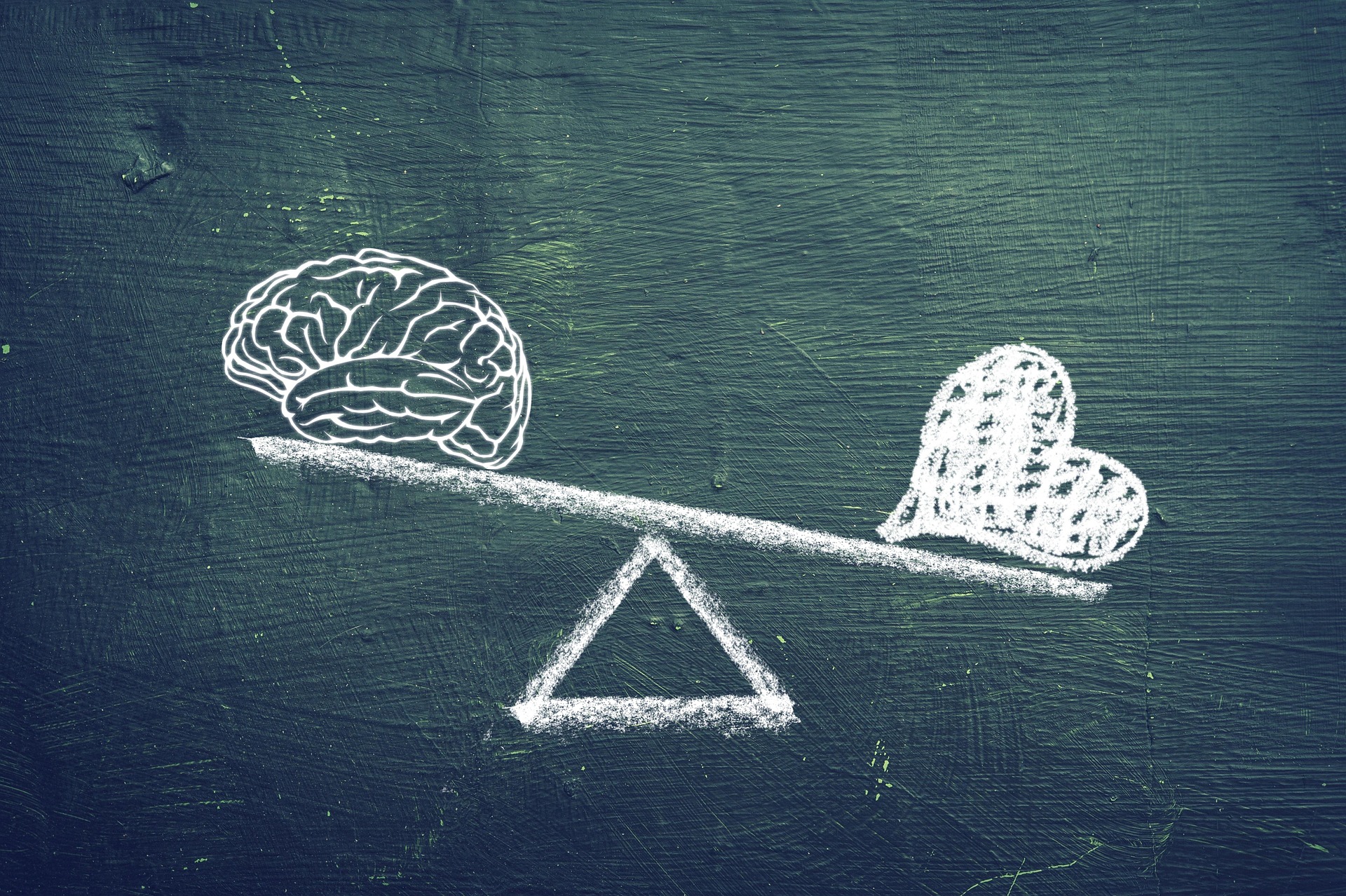Urgent Care
Diagnosis, treatment, and services for your everyday medical needs such as flu shots and lab work.

Today we live in a world where the philosophy of fairness has been questioned.
What is fair and how does one be fair without hurting anyone’s feelings? It’s hard to say because it’s impossible to know what someone is truly feeling on the inside, but a great starting point is to never be biased and treat everyone the same. Even if what you are suggesting to someone might sting, if you are being truthful and genuinely trying to help the person then you are completely in the right.
But fairness can be applied to all aspects of life, however, there is no more important place than fairness in health.
Family is the most important thing in life which is why it can be so hard to give an honest, unbiased opinion. These are the people whom you have spent your entire lives with so when someone begins to exercise less, gain weight, and is clearly in need of a wake-up call, being the one to do it is no easy task. But as difficult as this may be, the cornerstone of true love is brutal honesty because, in the long run, they will thank you.
If you are the type of person who has a hard time having these types of conversations, it’s best to put yourself in their situation. Wouldn’t you want someone to have your back, giving you words of encouragement? Of course, you do, who doesn’t? Sure, it may sting but this is your family. You’ve already been through the trenches together so it’s only fair to help them in a time of need.
Sometimes it isn’t that easy. You may have a hard-headed family member who is as stubborn as they are naïve and will always think they know what’s best for them because after all, you can never truly know a person, right?
Wrong.
You do know this person! You grew up together and spent years of time with one another, and as much as they might think you don’t understand them, this is the most important time to reach out and help because they are so far removed from themselves that they need someone to come in and support them, whether they know it or not. This will only create a stronger and deeper bond between you and when there comes a time in life when you need someone to show the same kind of fairness, they will gladly be there to offer it.
For some people helping others is easy. They have no problem being unbiased and supplying the truth where it is needed, but when it comes to practicing what you preach, that’s a whole other story.
This may sound strange but being unfair to yourself is incredibly selfish. Yes, it’s important to put others’ feelings ahead of yours, but that’s only true sometimes. The same way you should be fair to your family, you should also be fair to yourself. It’s easy to look around and help everyone else, pointing out how and where they should improve their lives, but talk is cheap. It’s time to apply the same unbiased words to yourself.
It’s an easy system to follow. When you’re good, reward yourself, and when bad punish yourself. Now, this isn’t meant to be viewed in extreme circumstances but offers a healthy way of acknowledging when you’re right and wrong. After a week of exercise, healthy eating, and long hours at work, take a night off to let loose. But if you’re the opposite, eating junk food and slumping on the couch all week, then it’s time to put down the chips and hit the gym.
Let’s say your brother has an injury that won’t go away, and he complains about the pain but won’t seek medical attention. It’s easy to hold him accountable believing him to be responsible for his own body, however, this is your brother. You care about him, right? Sure, you do. So now it’s your job to help and offer a sense of tough love. Be the one to hold him accountable and be so persistent that he finally gets a check-up. After he heals, you’ll get all the credit.
This exact example applies to you as well. Don’t just sit around waiting for your body to heal when you can just as easily go to your nearest urgent care facility and get a check-up. The truth can be intimidating but be fair to yourself because when it comes to staying healthy, it’s better to hear the hard truth than face grave consequences!
When it comes to your health and the health of your loved ones, always be fair and help where you can. As tough and awkward as it may get, these are the moments when you need to step in because if we can’t count on family then who can we count on you? Even if you get backlash, it’ll be worth it in the end because you know in your heart that you are being unbiased and only trying to help.
* Legal disclaimer: The content of this article and the entire Chai Care blog is for educational purposes only; it does NOT constitute medical advice and must not be considered as such. Please consult a medical professional regarding any symptoms or health concerns you or your loved ones.
Nov 09, 2022
Living a proactive and healthy life is simple if you let it be.
You know the rules, don’t you? Eat healthy, exercise, get regular check-ups, and receive medical attention when needed, and you will have the much-desired lifestyle that you have only read about, yet most people have a difficult time following this structure. I’m sure you have made the typical excuses, “I worked all day and don’t want to go to the gym”, or “I’ll be fine, I’m sure I didn’t break anything”, and the coveted “I don’t want to waste my time at urgent care”. These are all rationalizations that lead to lazy, destructive lives due to a lack of knowledge on how to improve your decision-making. Lucky for you, there is a formula.
Most people don’t know the difference between rationality, rationalism, and rationalization. They all may appear similar, but they are strikingly different from one another, so much so that your entire life can change just by understanding these individual philosophies. Each idea represents and examines concepts and strategies in life, however, depending on which one you choose your existence will either turn out to be one with good health and happiness and the other, well, not so much.
Although the words may sound similar, rationalism is much different from rationality. The main point is that rationalism is knowledge that cannot be confirmed with observation.
The best, albeit counterintuitive example would be intuition (see what I did there?). This is the ability for people to know things that are determined by the unconscious mind, in other words, something that you don’t see but can feel. We all have had moments where we have some sort of gut instinct that something eerie is lurking in the shadows and perhaps it’s best to take a taxi home rather than walk only to discover the next day that there was a mugging at that very spot. Coincidence? It’s impossible to say because this philosophy is cloaked by its own theory, thus making it more skeptical than rationality.
Think of it like this, you step on a jagged piece of glass, and it punctures your heel. You aren’t sure how deep the cut is so you don’t think it may be worth visiting an urgent care facility because it is a waste of time. The wound won’t stop bleeding and the pain won’t decrease. Is it better to listen to your gut where there is no visible proof or take an easy ride to a medical facility to have it examined? The choice is simple, get it checked. It sounds obvious but the safer play is to always use legitimate proof.
But really, at the core, rationalism simply means the school of thought that argues that the truth can only be found through mental operations that bypass the evidence offered by senses. René Descartes is arguably the most famous rationalist philosopher famous for his extremely skeptical attitude to the input from senses, and for stating “I think, therefore I am” – the quintessential example of deriving the truth by logical reasoning from the data available to the mind without the input from senses.
Rationality is the method for solving problems with logic and well-structured thinking.
If X than Y.
If you eat unhealthy food, your body gains fat. If you smoke cigarettes regularly, you are more likely to have lung cancer. If you break your arm, you should visit an urgent care facility and get a cast.
These are simple examples of cause and effect. If you do “X” then “Y” will happen. It’s a simple mathematical equation that can radically improve your life, but many people have a hard time solving it. The conundrum isn’t that the equation is confusing but that it requires consistent discipline, sacrifice, and most of all, toughness. Whoever said that working out every day and eating clean is a simple task was a liar and most likely was preaching to the choir. This formula is simple in theory yet difficult to live by due to the everyday struggles that people have. Children, work, relationships, and personal obligations all can complicate this equation yet it’s crucial not to fall into the trap of excuses.
Having a sense of rationality will not only construct a proactive life but will also help you sustain one. It’s an important foundation to live by because it will create a consistently safe and well-thought-out strategy on how to avoid danger and physical harm while simultaneously helping maintain your health and safety. With that being said, don’t confuse rationality with rationalism.
The worst thing you can possibly do is rationalize a situation. This is an act of attempting to explain or justify behavior with logical reasons even if they are not appropriate.
Cigarette smokers are the best example of this. Take John. His boss has been chewing him out all day due to his lack of accomplishments. He is then asked to stay late so he rationalizes to himself that a few puffs will calm his nerves and give him some newfound energy even though it is scientifically proven that cigarettes are extremely harmful to the human body and don’t really supply any organic vitality.
People are always looking for ways to rationalize their self-destructive behavior so they can ignore the problems that they are too scared to face. This negligence is not only harmful to yourself but to those around you. Think of your children, partner, or friends. These people care deeply about you and want what is best for you so when they suggest you should change your eating habits or pay a visit to a nearby urgent care facility for a physical, listen. To rationalize make-believe stories about your health is as foolish as it is incorrect.
These are the moments when it’s time to use the basic rationality formula—if you have been feeling unwell, then you should seek medical attention to receive a diagnosis.
The best approach to pursuing a proactive life is to live with a sense of rationality. Be calculated and wise with your decisions rather than following unproven theories because when it comes to your health, it’s never safe to trust anything besides facts. Be smart, be safe, and always use your head rather than your heart!
* Legal disclaimer: The content of this article and the entire Chai Care blog is for educational purposes only; it does NOT constitute medical advice and must not be considered as such. Please consult a medical professional regarding any symptoms or health concerns you or your loved ones.
Nov 02, 2022
For most people, apologizing is no easy task. Sometimes you may not even feel that you are wrong but choose to apologize just to keep the peace. The truth is telling someone that you are sorry is healthy for the mind, body, and soul. It’s a way to cleanse yourself of ego and self-manufactured pride and can literally make you a healthier person!
We’ve all had a huge fight with a friend. Whether you’re right or they are, no one feels good. Then comes the waiting game. Who is going to apologize to who? You find yourself in a game of chicken, anticipating a long, heartfelt apology but it never comes. The more you wait, the more tension builds.
And builds…
And builds…
If you’re like me, you start to begin feeling ill. This tension takes a toll not just on your mental health but on your physical health too.
It’s been weeks since the two of you have spoken and this pointless fight is now beginning to have real-world consequences. You’re having a difficult time getting out of bed in the morning, your old habits are now pointless and maybe even are abusing drugs and alcohol. That tension you originally felt has mutated into a rage monster and an apology will no longer suffice. All over what? A stupid little argument that you can’t even remember.
Yes, this is a situation that I went through years ago and deeply regret but was also an amazing learning experience. Even though that friend and I never forgave one another, I made a personal vow to myself that I would never do anything like that ever again. Not a single positive thing came from not apologizing and in fact, only made me worse for it. It may sound crazy but learning the ability to admit guilt and apologize for my wrongdoings has not only made me a happier person but a healthier one too.
There’s nothing worse than a disingenuous apology. These empty words feel more like a slap in the face than an admission of guilt and it is crucial to mean what you say and say what you mean. This person that you’re trying to make up with is a friend or a loved one which means they know when you are BS’ing them or not. If they get even a whiff of sarcasm or that you are in some way patronizing them, good luck because you’ll be sleeping on the couch that night.
Before you rush to apologize, a lazy way to get yourself off the hook, really listen to what the person is telling you. More likely than not, what they are saying can really benefit you. Whether they don’t appreciate your sudden burst of anger or your unhealthy lifestyle, this is a moment to not only say sorry but have a moment of reflection. This person cares and wants the best for you so don’t neglect their advice.
Outside of apologizing to others, many people (including myself) have a hard time absorbing an apology. Whether this is from childhood trauma or a manipulative relationship, it’s crucial to understand that this incident took place in the past and this person really cares about you. It’s extremely unhealthy for not just the relationship but your own mental health to let past experiences trickle into your current life. This isn’t to say you shouldn’t use past events to help navigate you through current situations, it just means you can’t let them control you.
Sometimes it really isn’t your fault. You make a genuine apology and listen to what the other person has to say and for some unexplainable reason, they don’t accept your words to be true. There’s no rhyme or reason to it so there’s no need to try and make sense of it because this person had already made up their mind before a single word left your mouth. Even though it’ll sting, this is another important lesson—how not to handle an apology. If someone isn’t emotionally mature enough to care when someone is being vulnerable and really trying to make amends, maybe it’s time to cut ties.
At the end of the day, no one likes to fight. Well, maybe the people who compete in the UFC do but that’s a different story. When you truly care about someone, expressing how you feel and swallowing your pride is worth it and will only make you an overall better person. Even those times when you feel that you have done nothing wrong, listen to what is being said to you because there will most likely be some wisdom to gain.
* Legal disclaimer: The content of this article and the entire Chai Care blog is for educational purposes only; it does NOT constitute medical advice and must not be considered as such. Please consult a medical professional regarding any symptoms or health concerns you or your loved ones.